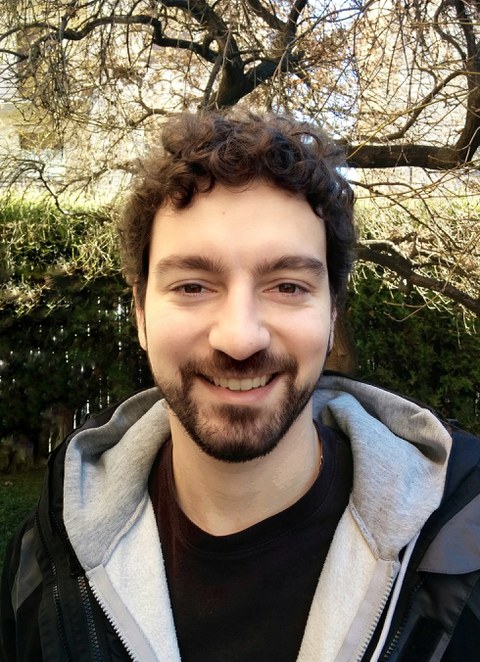Jan 16, 2017
AvH PostDoc Fellow to research microelectronics at Department of Mathematics at TU Dresden

Dr. Marco Salvalaglio
The Italian material scientist Dr. Marco Salvalaglio started one of the renowned Alexander von Humboldt PostDoc fellowships at the Institute of Scientific Computing (IWR) at TU Dresden in December 2016. In his 24-months project „Phase-field modeling and simulations of the evolution of crystalline heterostructures for cutting-edge microelectronics applications,” he targets at researching new applications in microelectronics by using mathematics.
Mathematics is often referred to as a rather dusty and dry subject, which lacks any practical relevance. Far from it! Prof. Dr. Axel Voigt is Director of the Institute of Scientific Computing (IWR) at TU Dresden and since December 2016 the scientific host of the AvH postdoc fellow Dr. Marco Salvalaglio from Italy. The IWR pursues in an interdisciplinary approach the development of mathematical models, numerical algorithms and simulation software in order to answer relevant and cutting-edge issues from the natural and engineering sciences. Modern high-performance computers offer comprehensive research possibilities in fields of materials sciences, biology, mechanics, art and design.
Due to the innovative and interdisciplinary research environment, Dr. Salvalaglio decided to pursue his AvH postdoc fellowship at the IWR. After having been at TU Dresden as a visiting PhD in 2014 and 2015, he was determined to continue his research activity about the modeling and simulation of materials with Prof. Voigt as host.
His project „Phase-field modeling and simulations of the evolution of crystalline heterostructures for cutting-edge microelectronics applications” deals with the theoretical modelling and simulation of material properties at the nano- and microscale. He therefore aims at using the so-called phase-field modeling, a strong expertise of the IWR. The phase-field approach allows for the easy managing of complex geometries evolving in time and for the simultaneous modeling of different physical effects. In this way, Dr. Salvalaglio hopes to tackle the study of the growth and processing of advanced materials. The subsequent aim is to exploit this theoretical framework in order to investigate specific, technology-relevant heterostructures, tailoring prototypical systems for microelectronics applications. The comparisons of the theoretical results to experimental systems will be carried out in collaboration with the Material Research Department of the Leibniz Institute IHP in Frankfurt (Oder) led by Prof. Thomas Schroeder.
More information:
Humboldt foundation: https://www.humboldt-foundation.de
IWR: https://tu-dresden.de/mn/math/wir
